sign in
Latest

Apple will stop letting Epic Games use ‘Sign in with Apple’ on September 11th
Apple will no longer allow Epic Games users to 'Sign In with Apple'
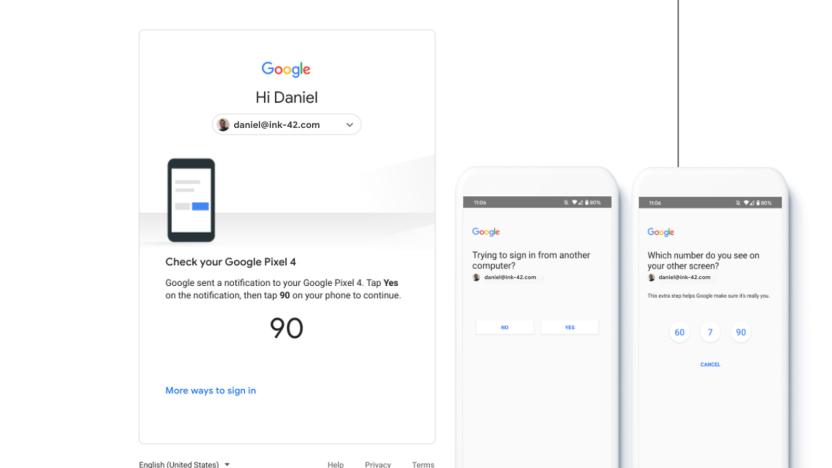
Google will default to phone notifications for two-factor sign-ins
Google will default to phone verification prompts for two-factor sign-ins instead of less secure SMS codes.
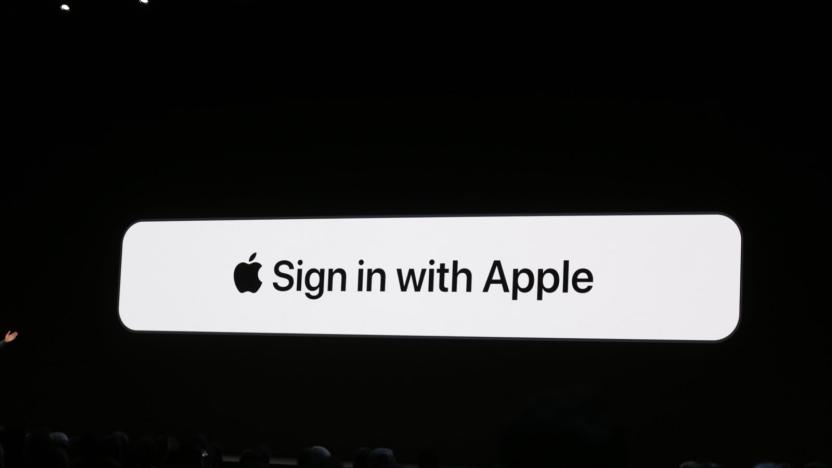
App maker claims 'Sign in with Apple' copies anonymous email feature
Sign in with Apple's ability to shield your real email address may sound clever, but one app developer claims it's just riffing on their technology. Blue Mail creator Blix has sued Apple for allegedly violating a 2017 patent on the "Share Email" feature in its app. The company claims that Apple's generation of a unique email address for sign-ins copies Blue Mail's ability to share a public email address for messaging while hiding your actual address.
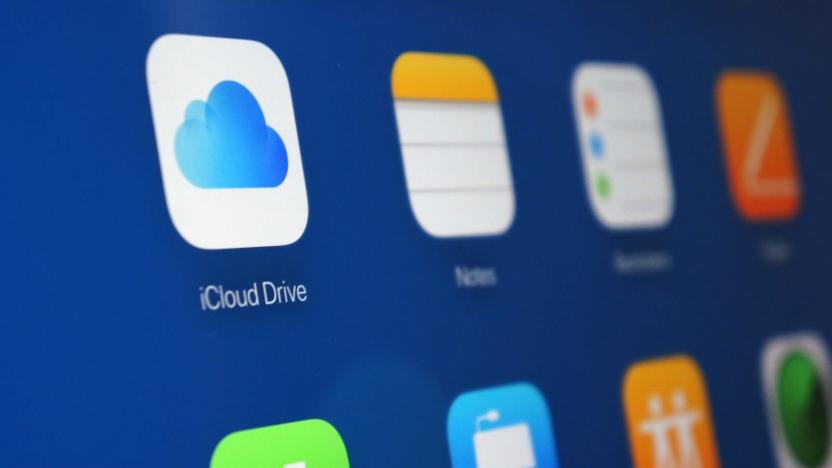
Apple tests iCloud.com sign-ins with your face or finger
The iCloud website is handy when you want to check info from an unfamiliar device or just prefer to use a browser, but the need to enter your password could be enough of a pain that you might just pull out your phone instead. Soon, though, it could be relatively effortless. The company is testing a beta iCloud site that uses Face ID or Touch ID to sign you in. You'll need a beta version of iOS 13, iPadOS or macOS Catalina, but after that it's just a matter of using your face or finger to sign in with compatible Apple gear.

Your Android phone can sign you into Google on iOS devices
Who said that Apple- and Google-powered devices can't work in harmony? Not Google. It's taking advantage of its recently added security key functionality to use your Android phone as verification for Google sign-ins on iOS devices. If you have Google's Smart Lock app installed on your iPad or iPhone and have 2-Step Verification enabled on your account, you can hold the volume down button on your Android hardware (when prompted) to greenlight the login on the other platform.

The web just got an official password-free login standard
Web Authentication (aka WebAuthn) has been a de facto standard for no-password web sign-ins for a while given that many tech giants are already using it, but now it's official. The World Wide Web Consortium and the FIDO Alliance have finalized the Web Authentication format, making it the go-to option for logging into accounts with potentially greater security and convenience than typing in your credentials. If a site supports it, you can get in using biometrics (such as fingerprints or facial recognition), USB security keys, or nearby mobile devices like phones and smartwatches.

You can sign into your Microsoft account without a password
Now that the Windows 10 October update (aka 1809) is back, Microsoft is taking advantage of it to continue its fight against passwords. You now have the option of signing into your personal Microsoft account using the Edge browser and either Windows Hello or a FIDO2-based security device like Yubico's YubiKey 5. You won't have to remember your password every time you want to check mail in Outlook or buy a game for your Xbox.
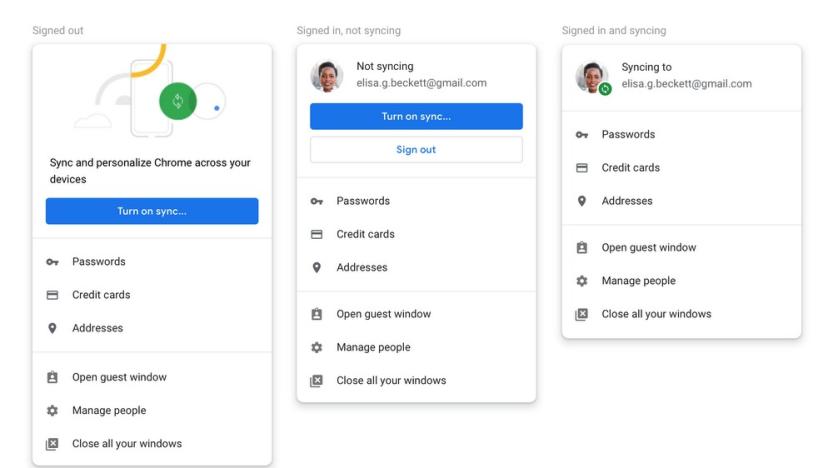
Chrome 70 will let users decline linking web, browser sign-in
Over the weekend professor and cryptographer Matthew Green noticed that in Chrome 69, signing into Google websites while using Chrome caused the browser to show him as signed in there as well. Concerned about the implications of tracking behavior across a browser session even though he had intentionally not signed into Chrome, he wrote about it. Google Chrome manager Adrienne Porter Felt explained that the change happened to remind users of who is signed in, and that it did not sync activity to the server under the Google profile unless additional steps were taken.
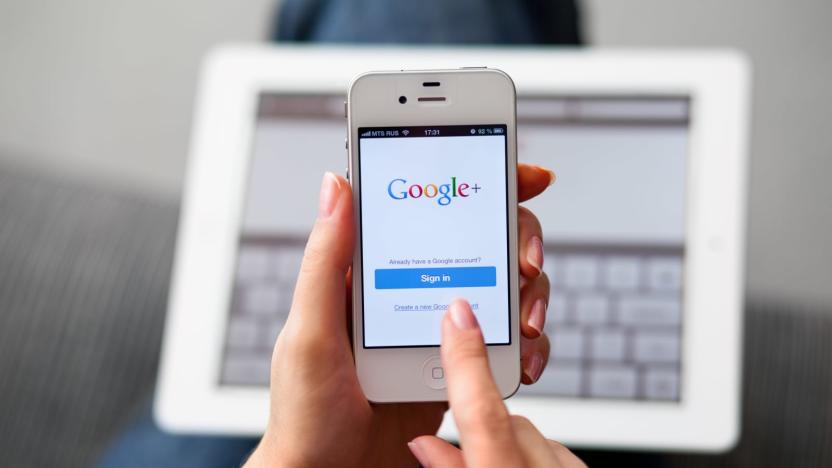
Google rolls out a simpler sign-in page
When Google announced last month that it's rolling out a new sign-in page, it promised a new interface with Material Design components as part of its efforts to give G Suite a more cohesive look. We'll have to wait a bit more to see it, though, because the one it's currently rolling out has a scaled-down Material Design theme. The tech giant didn't reveal if it came across issues that prevented it from releasing the redesigned sign-in page, but it's worth noting that the version hitting your accounts this week is already a month late.

Paypal lets you spend money in Gmail, YouTube and more
Android Pay users have been able to dip into their PayPal accounts for a little over a year. Now, the money transfer service has partnered with Google to provide a more seamless way to use it across products like Google Play, YouTube and Gmail.

Researchers can use the size of your heart to unlock a PC
Most biometric security has one inconvenience: you have to take an active step to sign in, whether it's putting your finger on a pad or staring at sensors. Wouldn't it be nice if simply being near your device was enough? It might happen. Researchers have created a computer authentication system that uses your heart's shape and size to sign in. It uses low-level Doppler radar to continuously scan your heart's dimensions, granting access so long as you're in the right place. In other words, Cindy-Lou Who couldn't hijack the Grinch's PC when he steps away for a coffee break.

Facebook's Account Kit signs you in with a phone number
Twitter isn't the only big social network that wants you to ditch the password. Facebook is using its F8 conference to unveil Account Kit, a framework that lets you sign into apps using a phone number or email address. You won't need a Facebook account just to get into that music store or messaging service; you just have to acknowledge a confirmation message (either by email or SMS) to get your foot in the door. The feature is useful worldwide, but it's particularly crucial in developing regions, where having a Facebook account is far from guaranteed.

BBC iPlayer favourites now sync across your devices
BBC iPlayer is a capable streaming service, but until now there's been little incentive to create an account. Setting up a BBC iD lets you "favourite" shows and save featured music with BBC Playlister, but there the benefits quickly dry up. Now, the BBC is trying to make its account system a little more useful and feature-rich. For starters, it's updating its iPlayer apps with the option to sync favourites between devices. So if you're digging the latest Louis Theroux documentary, you can bookmark it on your laptop and easily find the latest episodes on your smartphone. It's a small step for iPlayer, but one that hopefully primes the platform for other requested features, such as seamless cross-device playback.

Yahoo hopes that you'll forget your password
Twitter isn't the only internet giant that wants to spare you from remembering passwords. Yahoo has just trotted out an optional login process that sends passwords on demand. Sign up and Yahoo will deliver a single-use password to your phone whenever you need to log in -- you can prevent someone from easily hijacking your account no matter what device you're on as long as your handset is nearby. This extra-secure option is only available in the US right now, but there's a good possibility that you'll see it in other countries before long.

Twitter is ready to replace your apps' web passwords with phone numbers
Ready to ditch old-fashioned passwords on the web? Twitter is, too. It just released a developer kit that lets mobile apps' companion websites use Digits phone number logins. While you still have to create an account on your phone to get things started, you'll have the option of using your number to sign in on the web from then on. About the only additional hassle is having to enter a confirmation code (sent to your handset) the first time you use the new method. It's going to take a while before developers add Digits to their sites and let you use it in the real world, but the framework is in place.

Twitter login bug kicks users out (update: resolved)
Did your Twitter app suddenly give you the boot or otherwise behave strangely? It's not just you. The social network has confirmed a sign-in problem that's kicking out hordes of users (so far, mostly on Android) and preventing them from logging back in. Also, TweetDeck on the desktop is listing every new tweet as a year old. We've reached out to the company for more details, but it's possible that there's a date-related flaw at work -- a coder who intercepted the Android app's login traffic, Ninji, has noticed that the company's servers believe it's already 2015. Twitter has engineers tackling the issue, so sit tight if you want to tweet through your favorite apps. Update: And we're back. The issue that prevented some users from signing in to Twitter has been resolved. We apologize for the inconvenience: http://t.co/7BlGvFMC3e - Twitter Support (@Support) December 29, 2014

PSA: Destiny sign-in issues on PS4 [Update]
Those hoping to play Destiny on PS4 this morning may encounter a few issues getting into the game, and Bungie is on the case. The developer's support team tweeted today that it is "actively investigating issues impacting players' ability to sign in to Destiny on PlayStation 4." While not determined to be related at this point, the log-in issues hit the game on the same day as the PS4's next major system update, Version 2.0. The update adds the online multiplayer Share Play feature to the console as well as the ability to play music files from a USB stick. Destiny was also recently patched on all consoles to remove an exploit in its Vault of Glass mission. We will update as we learn that the fix for Destiny's sign-in issues on PS4 is in. Update: Bungie says the "issues preventing PlayStation 4 players from signing into Destiny are resolving." [Image: Activision]

Yahoo to strip Facebook and Google logins from Flickr starting June 30th
Yahoo's slowly been closing off third-party logins for its web services, but it's now turning its attention to one of its most-established communities: Flickr. The Next Web reports that the company has emailed users telling them that Facebook and Google account logins will be removed from the photo-sharing site starting June 30th. Yahoo previously said the change would allow it to offer "the best personalized experience to everyone," but given its desire to reinvent itself, ridding its services of rival logins keeps users inside its walled garden and helps boost its own userbase. If your desired login option will cease to exist come June 30th, Yahoo asks that you log into the site one last time using your Facebook or Google details. You'll be required to create a new Yahoo account, which will then be linked with the account you've used previously.

Xbox Live problems keep many Xbox One owners from calling in their Titan (update: fixed!)
Just as the Xbox One's biggest game release arrives, network problems are keeping many owners from signing in. The Xbox Support Twitter account reported an issue around 5PM ET, and according to the service's dashboard it's still ongoing. While many players who already setup their consoles and logged in to the game (including some of our editors) are able to connect and play Titanfall -- the game's cloud seems to be holding up, even if Xbox Live isn't in general -- others are unable to sign in, particularly brand-new Xbox One purchasers who can't get much of anything going. The support team's message has been promising updates every 30 minutes or so, but so far there's no ETA on a fix. Steam appears to have just come back online after downtime of its own -- perhaps we could suggest some Dark Souls II on PC in the meantime? Update: As of 10:47PM ET the Xbox Status page and Support Twitter report the problem is resolved. The team recommends a full power cycle (hold down the Xbox button on the system itself for five seconds to turn it all the way off, then turn it back on), and then you should be ready to request your Titan, pilot.

Google+ Sign-In lets you use account info across iOS, Android and web apps
These days it seems like every app wants your Facebook or Twitter info -- it figures that Google wants a piece of that action, too. Today the software giant announced Google+ Sign-in, a new feature that makes it possible to log into non-Google apps using your credentials for its myriad services (your Gmails, your YouTubes, et al). Google promises that Sign-in, which will be available for Android, iOS and web apps alike, will deliver the "protections and safeguards you've come to expect," plus some tweaks for the Google Maps Android API. The feature also makes it possible to decide what information you're sharing, so you don't spam the rest of us with your fitness goals (have we mentioned how fit you're looking these days?). You can also manage all of the apps you're using with Sign-In through Google+. More information for developers and users alike can be found in the source link below.








